Steps to Take After a Property Damage Claim in Florida
See How We're Different
or call us: 954-233-0733
Experiencing property damage can be a stressful and overwhelming situation. Whether it's due to natural disasters,
accidents, or other unforeseen circumstances, knowing the steps to take after a property damage claim can help you navigate the process more smoothly. This article will guide you through each stage, from understanding
property damage claims to dealing with claim denials or disputes, ensuring you are well-prepared in the event of such unfortunate incidents.
Understanding Property Damage Claims
The Basics of Property Damage Claims
When your property suffers damage, filing a property damage claim is the first step towards seeking the necessary reimbursement or repairs. A property damage claim is a formal request made to your insurance company, outlining the details of the damage and the compensation you are seeking. Understanding the basics of property damage claims can help streamline the process and enable you to make informed decisions.
Property damage claims can arise from a variety of situations. It could be as simple as a broken window or as extensive as a fire that destroys your entire home. Regardless of the extent of the damage, it is crucial to document the incident thoroughly. Take photographs, gather any relevant receipts or invoices, and make a detailed list of the damaged items. This documentation will serve as evidence when filing your claim.
Once you have gathered all the necessary information, you can proceed with filing your property damage claim. Contact your insurance company and provide them with the documentation you have collected. They will guide you through the process and may require additional information or evidence to support your claim. It is essential to be proactive and responsive during this stage to ensure a smooth and efficient resolution.
Common Types of Property Damage in Florida
Florida is no stranger to various types of property damage, often caused by hurricanes, floods, fires, or even vandalism. Knowing the common types of property damage that occur in your area can help you better prepare for potential risks and understand the specifics of your insurance coverage.
Hurricanes are a significant concern in Florida, especially during the Atlantic hurricane season, which runs from June to November. These powerful storms can cause extensive damage to homes and properties, including roof damage, flooding, and structural issues. Understanding the steps to take before, during, and after a hurricane can help minimize potential damage and ensure a smoother claims process.
Flooding is another common type of property damage in Florida, particularly in low-lying areas or regions prone to heavy rainfall. Floodwaters can cause significant damage to the structure of a property, as well as its contents. It is crucial to have flood insurance coverage if you live in a flood-prone area to protect yourself financially from potential losses.
Fire damage is a devastating occurrence that can result from various causes, such as electrical faults, cooking accidents, or even arson. Fires can quickly engulf a property, causing extensive damage to the structure and its contents. Having a comprehensive understanding of your insurance coverage and taking necessary precautions, such as installing smoke detectors and fire extinguishers, can help mitigate the risk of fire damage.
Vandalism is another unfortunate reality that property owners may face. Acts of vandalism can range from graffiti and broken windows to more severe damage, such as intentional destruction of property. Understanding the steps to take when dealing with vandalism, such as filing a police report and documenting the damage, can help support your property damage claim.
Immediate Actions Post-Property Damage
Experiencing property damage can be a distressing and overwhelming situation. It is important to take immediate actions to ensure your safety and the safety of your loved ones. Here are some safety measures to consider:
- Evacuate the premises if necessary: If the damage is severe and poses a threat to your safety, it is crucial to evacuate the premises immediately. Your life and the lives of your loved ones are more important than any material possessions.
- Call emergency services: In case of a fire, flood, or any other emergency, dial the emergency services number in your area. They will provide the necessary assistance and ensure that everyone is safe.
- Shut off utilities: If you notice any gas leaks, electrical issues, or water damage, it is important to shut off the utilities to prevent further damage and potential hazards. Familiarize yourself with the location of the main switches and valves in your property.
- Ensure everyone is accounted for: After evacuating the premises, make sure that all family members, pets, or any other individuals who were present at the time of the incident are accounted for. If someone is missing, inform the emergency services immediately.
Documenting the Damage
Once you have taken the necessary safety measures and ensured everyone's well-being, it is important to document the damage for your property damage claim. Here are some steps to follow:
- Take clear and detailed photographs: Use your smartphone or camera to capture clear and detailed photographs of the affected areas from multiple angles. This will provide visual evidence of the extent of the damage.
- Make a written inventory: Create a written inventory of all the damaged items. Include a description of each item, its approximate value, and any relevant information such as serial numbers or purchase dates. This will help you in accurately assessing the losses.
- Record any additional information: Take note of any additional information that may be relevant to your insurance claim. This could include the cause of the damage, any witnesses present, or any immediate repairs you had to make to prevent further damage.
Remember, the more detailed and thorough your documentation is, the stronger your property damage claim will be. It is important to keep all the photographs, inventory, and records in a safe place for future reference.
Navigating the Insurance Claim Process
Contacting Your Insurance Company
Once you have dealt with immediate safety concerns and documented the damage, it is essential to contact your insurance company promptly. Your insurance company will guide you through the claims process, provide necessary forms, and explain the required documentation. Be sure to provide all the information they request accurately and in a timely manner to avoid delays in processing your claim.
When you contact your insurance company, it is helpful to have certain information readily available. This includes your policy number, the date and time of the incident, a detailed description of what happened, and any relevant photographs or videos of the damage. The more information you can provide, the smoother the claims process will be.
Once you have reported the claim, your insurance company will assign you a claims adjuster. The claims adjuster will be your main point of contact throughout the process. They will review your policy, assess the damage, and determine the coverage and reimbursement you are eligible for. It is important to maintain open communication with your claims adjuster and promptly respond to any requests for additional information or documentation.
Understanding Your Insurance Policy
Before proceeding further, it is vital to review and understand your insurance policy thoroughly. Familiarize yourself with the coverage limits, deductibles, exclusions, and any other relevant terms and conditions. This knowledge will help you comprehend the extent of your insurance coverage and what expenses you can expect to be reimbursed for.
Insurance policies can be complex documents, filled with legal jargon and technical terms. If you find it challenging to understand certain aspects of your policy, don't hesitate to reach out to your insurance company for clarification. They have professionals who can explain the terms in simpler language and answer any questions you may have.
It is also important to review your policy for any specific requirements or obligations you need to fulfill during the claims process. This may include providing proof of ownership for damaged items, obtaining repair estimates, or submitting a detailed inventory of the damaged property. By familiarizing yourself with these requirements in advance, you can ensure a smoother and more efficient claims process.
Furthermore, it is worth noting that insurance policies can vary significantly from one company to another. What may be covered under one policy may not be covered under another. Therefore, it is crucial to understand the specific terms and conditions of your own policy to avoid any surprises or misunderstandings during the claims process.
Hiring a Property Damage Lawyer
When it comes to dealing with property damage claims, it's important to understand when it may be necessary to seek legal assistance. While many claims can be handled directly with your insurance company, there are certain situations where involving a property damage lawyer becomes crucial.
One instance where you should consider seeking legal assistance is if your claim involves significant damage. Whether it's due to a natural disaster, a fire, or any other catastrophic event, significant damage can lead to complex issues that may require the expertise of a lawyer. They can help you navigate through the intricacies of your claim and ensure that you receive the compensation you deserve.
Another situation where involving a property damage lawyer becomes necessary is if your insurance company denies or underpays your claim. Unfortunately, insurance companies are known for trying to minimize their payouts, and they may use various tactics to undervalue your claim. In such cases, having a lawyer by your side can make a significant difference. They can advocate for your rights and negotiate with the insurance company on your behalf, ensuring that you receive a fair settlement.
Complex legal issues can also arise in property damage claims, especially when it comes to determining liability. If multiple parties are involved or if there are disputes over who is responsible for the damage, it's essential to have a lawyer who can navigate through these complexities. They can investigate the circumstances surrounding the damage, gather evidence, and build a strong case on your behalf.
Choosing the Right Lawyer for Your Case
If you decide to enlist the help of a property damage lawyer, it's crucial to choose the right one for your case. With so many lawyers out there, it can be overwhelming to find the best fit. Here are some tips to help you make an informed decision:
First and foremost, look for lawyers with experience in property damage claims. They should have a track record of successfully handling cases similar to yours. It's also beneficial to find a lawyer who has specific experience in the state where your property is located. For example, if your property is in Florida, look for lawyers who are familiar with the relevant laws and regulations specific to the state.
Consulting with multiple lawyers is also essential. This will give you the opportunity to discuss your case with different professionals and gauge their understanding of your situation. During these consultations, pay attention to how well the lawyers listen to your concerns and whether they are willing to fight for your best interests. Remember, you want a lawyer who is not only knowledgeable but also genuinely cares about your case.
Additionally, consider the lawyer's communication style and availability. It's important to have open and transparent communication throughout the process, so choose a lawyer who is responsive and keeps you informed about the progress of your case.
By taking the time to find the right property damage lawyer, you can ensure that your rights are protected and increase your chances of receiving fair compensation for your damages. Don't hesitate to seek legal assistance when necessary, as it can make a significant difference in the outcome of your property damage claim.
Dealing with Claim Denials or Disputes
Reasons for Claim Denials
Claim denials can be frustrating and disheartening. It is essential to understand common reasons for claim denials to determine the best course of action. Some common reasons can include policy exclusions, lack of proper documentation, late filing, or disputes over the cause or extent of the damage. Understanding these reasons can help you prepare a strong case to dispute the denial if necessary.
Steps to Dispute a Claim Denial
If your claim is denied or you receive an inadequate settlement offer, don't lose hope. You have the right to dispute the denial or negotiate a fair resolution. Start by reviewing the denial letter thoroughly and identifying any discrepancies or errors. Collect additional evidence, such as expert opinions or testimonies, to support your claim. Communicate with your insurance company, presenting your case with confidence and professionalism.
In conclusion, knowing the necessary steps to take after a property damage claim in Florida can make a significant difference in successfully navigating the process. By understanding property damage claims, taking immediate actions to ensure safety and document the damage, and learning about the insurance claim process, you are better equipped to handle any potential claim denials or disputes. Remember, seeking legal assistance from a property damage lawyer and understanding your rights can be critical when faced with substantial damage or complicated claim issues. With this knowledge, you can confidently pursue your property damage claim and work towards recovering and rebuilding your property and life.








